1) Don't Eat Fast-Digesting Carbohydrates
Fast carbs spike insulin, which halts fat-burning and boosts fat storage, particularly on top of your abs. Carbs to avoid are white bread, white potatoes, table sugar, etc. Instead, choose whole-wheat, rye or sourdough breads, oatmeal, sweet potatoes, fruits, vegetables, quinoa, legumes and brown rice. One exception here: You can eat fast-digesting carbs right after workouts when they’ll be put to work boosting muscle recovery and growth.
2) Don't Neglect Recovery
You can do crunches until you're blue in the face, but if your body is not getting the right nutrition, your muscles will not grow. Whey protein and BCAA powder are two great examples of sports supplements that will help build lean muscle.
3) Don't Forget About Your Breathing
When you perform an ab exercise such as the crunch, exhale when you reach the finish or top position. This is important because it helps you better contract your abs. Holding the position for a second or two will maximise muscle-fiber involvement.
4) Don't Stop
You typically train in specific rep ranges, such as 8–10 or 12–15 reps per set. Yet when doing bodyweight ab exercises, you can’t alter the weight to match a predetermined number of reps. Therefore, rather than doing crunches or hanging leg raises for a set number of reps, do as many reps as possible until you come close to failure.
5) Don't Forget to Weight
Many guys worry that if they do weighted ab exercises, their abs will become thick and blocky. Yet abs are muscles just like biceps, so they need definition
and separation to stand out. Do some weighted movements in the 8–10-rep range for optimal ab development.
6) Don't Do Abs First
Some trainers recommend that you begin your workout with ab training to make sure you don’t skip it. We disagree. A recent study by the Weider Research Group found that when trained lifters did abs before legs in a squat workout, they completed fewer reps of squats than when they trained abs after the squat workout. This is because the abs, obliques and transverse abdominis work together to stabilise the core, which allows you to produce greater force. Training abs first fatigues them, which lessens your core stability and weakens your base, as well as your ability to generate force.
7) Don't Always Train Abs at the Same Speed
Regular readers are well aware that M&F recommends changing up your rep speed from slow and controlled to fast and explosive, allowing you to utilise more fast-twitch muscle fibres to build more power, strength and size. According to new research from Spain, scientists tested the muscle activity of subjects’ rectus abdominis, external.
<div class="dynamic-checkout__content" id="dynamic-checkout-cart" data-shopify="dynamic-checkout-cart"> <shopify-accelerated-checkout-cart wallet-configs="[{"name":"shop_pay","wallet_params":{"shopId":86998679862,"merchantName":"Bio-Synergy","personalized":true}},{"name":"paypal","wallet_params":{"shopId":86998679862,"countryCode":"GB","merchantName":"Bio-Synergy","phoneRequired":true,"companyRequired":false,"shippingType":"shipping","shopifyPaymentsEnabled":true,"hasManagedSellingPlanState":false,"requiresBillingAgreement":false,"merchantId":"BX39SM5AURRZW","sdkUrl":"https://www.paypal.com/sdk/js?components=buttons\u0026commit=false\u0026currency=GBP\u0026locale=en_US\u0026client-id=AfUEYT7nO4BwZQERn9Vym5TbHAG08ptiKa9gm8OARBYgoqiAJIjllRjeIMI4g294KAH1JdTnkzubt1fr\u0026merchant-id=BX39SM5AURRZW\u0026intent=authorize"}}]" access-token="247581fa6a77d56781a1eae7565dc4a2" buyer-country="GB" buyer-locale="en" buyer-currency="GBP" shop-id="86998679862" cart-id="ee9bcd9d54912cf8bc3b7172ab80b705" > <div class="wallet-button-wrapper"> <ul class='wallet-cart-grid wallet-cart-grid--skeleton' role="list" data-shopify-buttoncontainer="true"> <li data-testid='grid-cell' class='wallet-cart-button-container'><div class='wallet-cart-button wallet-cart-button__skeleton' role='button' disabled aria-hidden='true'> </div></li><li data-testid='grid-cell' class='wallet-cart-button-container'><div class='wallet-cart-button wallet-cart-button__skeleton' role='button' disabled aria-hidden='true'> </div></li> </ul> </div> </shopify-accelerated-checkout-cart> <small id="shopify-buyer-consent" class="hidden" aria-hidden="true" data-consent-type="subscription"> One or more of the items in your cart is a recurring or deferred purchase. By continuing, I agree to the <span id="shopify-subscription-policy-button">cancellation policy</span> and authorize you to charge my payment method at the prices, frequency and dates listed on this page until my order is fulfilled or I cancel, if permitted. </small> </div>







